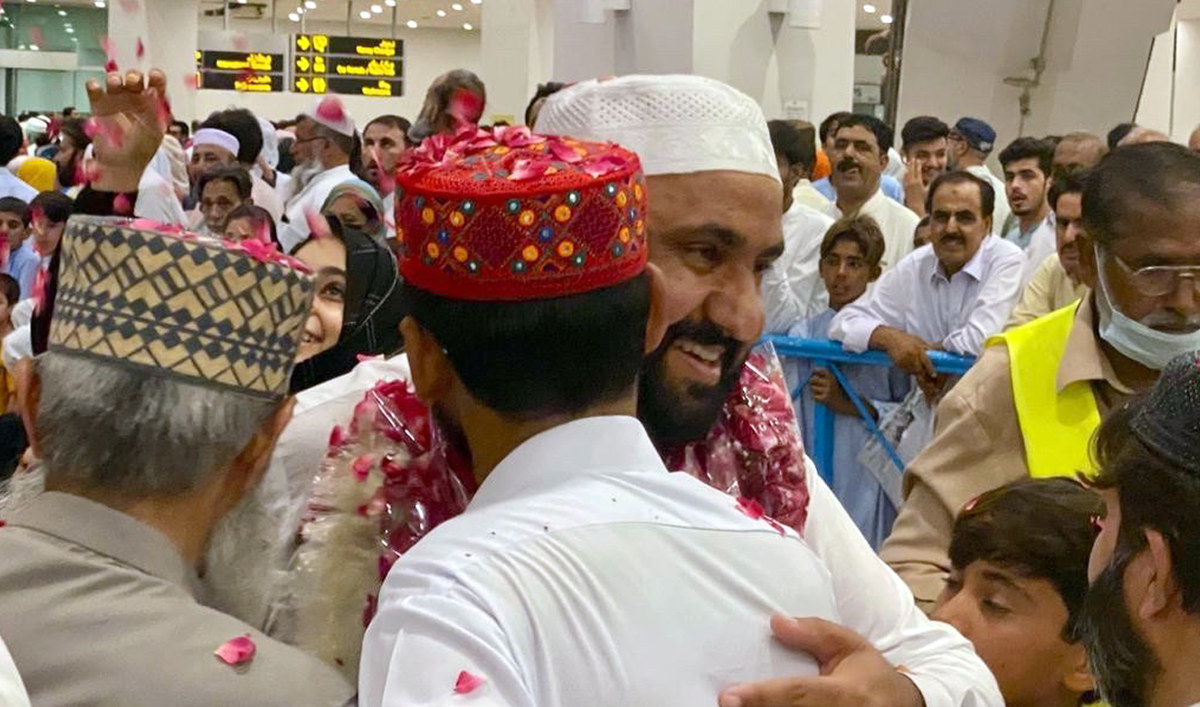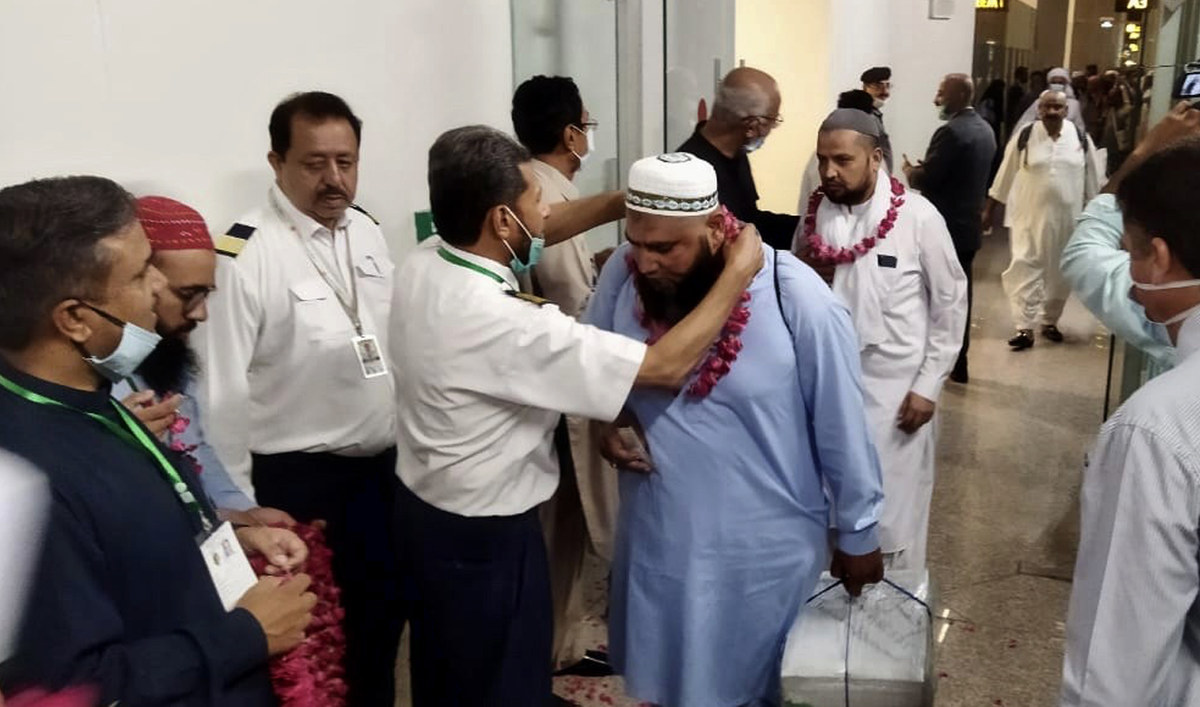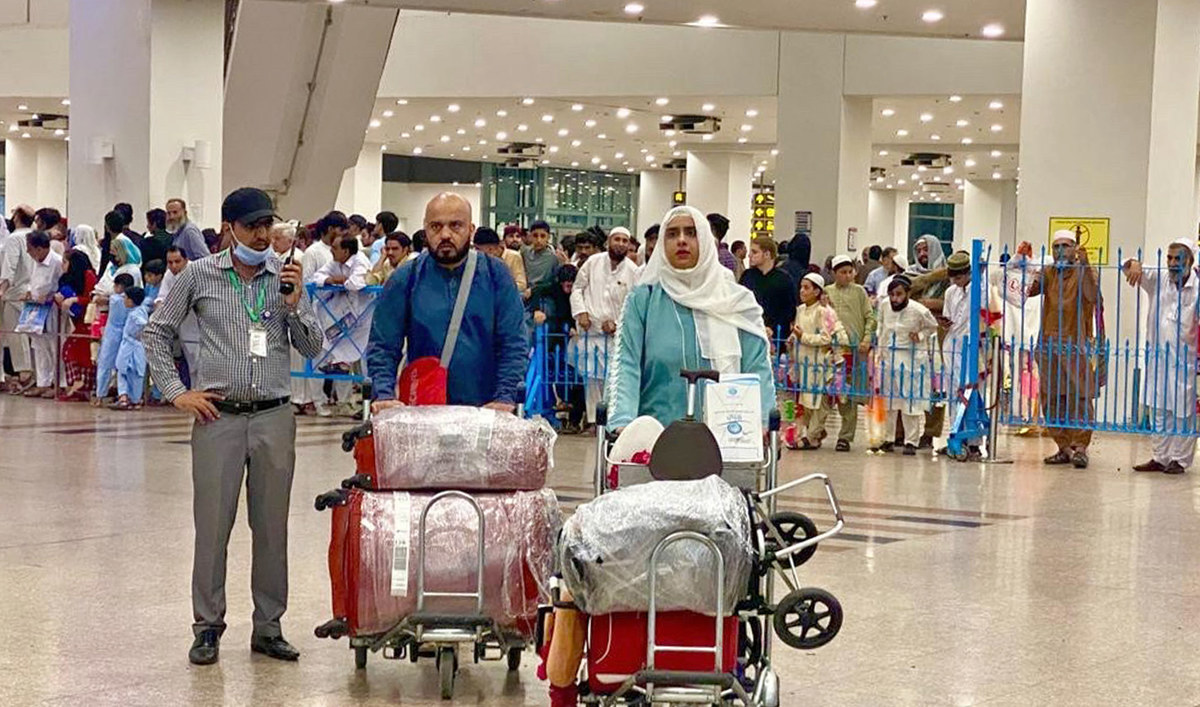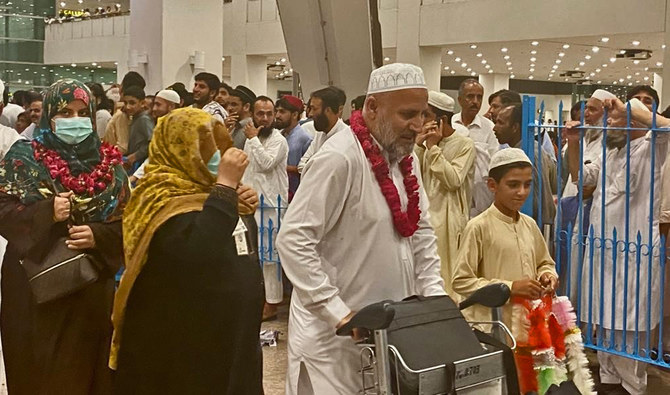ISLAMABAD: Pakistani pilgrims who returned from Saudi Arabia after performing Hajj on Tuesday praised the kingdom for employing “innovative” techniques that facilitated them in performing the Hajj in the sweltering heat.
Up to one million people performed the annual Islamic pilgrimage of Hajj this month after Saudi Arabia lifted coronavirus restrictions after two years. Pilgrims were required to be under 65 years and be vaccinated against coronavirus.
The kingdom allowed Pakistan a quota of 83,132 pilgrims this year out of which 34,453 availed the government’s Hajj scheme while over 48,000 performed Hajj through private operators.
According to the Ministry of Religious Affairs, 134 flights of Pakistani airlines, Pakistan International Airlines (PIA), Airblue, Serene Air, and Saudi Airlines would take part in the post-Hajj flight operation for pilgrims who used the government’s scheme. The operation will continue till August 13.
On Tuesday night, the first post-Hajj flight to Islamabad brought home 388 pilgrims who performed the pilgrimage under the government’s scheme.
“The Saudi government has done excellent arrangements, especially their innovative technique to use a massive water sprinkler system helped us a lot to cool down under the scorching sun,” Rana Babar Wali, a pilgrim from Faisalabad, told Arab News.

Families and friends welcome Pakistani Hajj pilgrims at the Islamabad International Airport, on July 19, 2022. (AN Photo)
He said pilgrims’ tents this year were air-conditioned and transport arrangements were also impressive.
Haseeb Ahmed Siddiqui, director of the Hajj Complex in Islamabad, received pilgrims at the airport. He said all pilgrims were very satisfied with Hajj arrangements undertaken by Saudi authorities and the Pakistani Hajj mission as “this year complaints from pilgrims were almost negligible.”

Officials from the Pakistani religious affairs ministry and PIA receive pilgrims at the Islamabad International Airport, on July 19, 2022. (AN Photo)
Siddiqui said the Route to Makkah initiative was executed successfully this year at the Islamabad airport due to close cooperation and coordination from the Saudi government.
Under the Makkah Route initiative, Hajj pilgrims can fulfil all immigration requirements at the airport of origin. This saves them several hours upon reaching the kingdom since they can just enter the country, having already gone through immigration at home.
Irfan Ahmed Khan, another pilgrim from Peshawar, praised the Saudi government for revamping Mina, Arafat and providing modern transport arrangements for pilgrims.
“It was the second time that I performed Hajj and this time it was all changed,” Khan told Arab News, adding that both Saudi and Pakistani authorities made this year’s pilgrimage very easy for the pilgrims. He praised Pakistani volunteers and Saudi officials for guiding pilgrims at various stages of the Hajj.

Pakistani pilgrims arrive at the arrival lounge of the Islamabad International Airport on July 19, 2022. (AN Photo)
Kalsoom Anwer, a pilgrim from Pakistan’s Rawalpindi city, praised Saudi volunteers, policemen, and other officials for providing pilgrims with drinking water and orange juices in Arafat in the scorching heat. “The volunteers were also sprinkling cold water to reduce the effect of the heat,” she added.
Another pilgrim, Bashir Khan from Pakistan’s Swabi city in northwestern Khyber Pakhtunkhwa, said it took pilgrims only 20 minutes at the immigration booth at Jeddah airport, on their return flight, due to the home check-in facility provided by the government.
“They [PIA officials] provided boarding cards at our residence one day before and our luggage was also taken from there,” he said. “That is why it just took us 20 minutes during the immigration at Jeddah airport,” he added.












